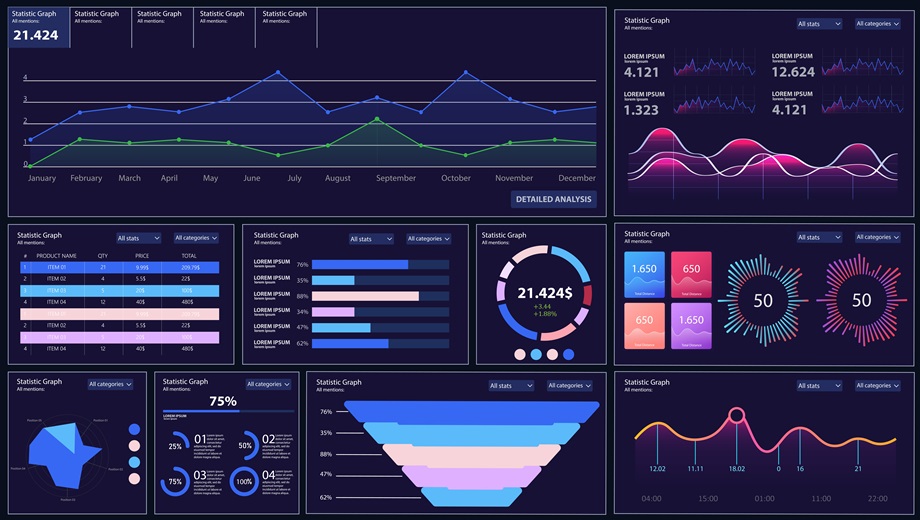Our client, a public administration institution, needed a centralized Business Intelligence (BI) reporting system to enhance data-driven decision-making.
OBJECTIVE
The goal was to design and implement a reporting solution using Power BI Report Server within an on-premises data environment to improve business intelligence analytics and enterprise reporting capabilities.
NEEDS AND REQUIREMENTS
Organizations relying on data-driven insights require centralized, accurate, and up-to-date reporting systems. Before implementation, the client faced:
- Fragmented data access, requiring significant manual effort for report generation
- Lack of consistency in reporting, making it difficult to compare data across departments
- Inaccurate analytics, leading to suboptimal business decisions
- Data silos, hindering efficient business operations
To address these challenges, a centralized data warehouse and BI reporting framework were implemented across 15 organizational units, ensuring automated reporting, streamlined data integration, and enhanced analytics.
OUR APPROACH
To ensure a successful BI implementation, we followed a structured approach:
- Business Needs Assessment & Stakeholder Engagement
- Conducted an in-depth analysis of reporting needs for better business intelligence
- Identified key stakeholders: C-level executives, IT teams, analysts, and department heads
- Defining Technical & Functional BI Reporting Requirements
- Established data security, compliance (GDPR), and access control mechanisms
- Defined BI architecture, data integration, and visualization needs
- Developing a Unified Data Model
- Designed a structured enterprise data model to support self-service BI
- Ensured seamless integration with existing ERP and CRM systems
- Data Integration & ETL Optimization
- Consolidated data from multiple transactional systems, Active Directory, Jira, and Report Server
- Applied ETL (Extract, Transform, Load) best practices to improve data accuracy
- Building Interactive Power BI Dashboards & Reports
- Created custom Power BI reports with dynamic, real-time insights
- Implemented self-service BI capabilities for end users
- Deploying & Optimizing BI Reporting Environment
- Deployed the solution on Power BI Report Server
- Optimized the data warehouse for high-performance analytical queries
OUR SOLUTION
The centralized BI reporting system revolutionized the organization’s approach to data analytics and decision-making. Key benefits included:
- Improved Business Decision-Making
- Real-time, accurate, and reliable business insights
- Enhanced financial forecasting and budget optimization
- Increased Operational Efficiency
- Automated reporting processes, reducing manual effort
- Seamless integration with ERP, CRM, and HR systems
- Enhanced Data Transparency & Compliance
- Improved data governance with centralized reporting
- Goal tracking and performance auditing
- Better Resource & HR Management
- Workforce analytics to track employee productivity, salaries, and workload
- Optimized resource allocation through data-driven insights
- Advanced Power BI Reporting & Collaboration
- Multi-level business reporting, improving interdepartmental communication
- Role-based access control ensuring data security
Why Choose a Centralized BI Reporting System for Your Organization?
If your business struggles with fragmented reporting, manual data handling, or inconsistent analytics, a Power BI-based centralized reporting system can help:
- Enhance data visibility and control
- Reduce reporting errors with automated dashboards
- Streamline data integration from multiple sources
- Empower stakeholders with real-time analytics
Get Started with Data-Driven Insights Today!
Are you ready to optimize your business intelligence strategy with Power BI? Contact us to explore how a centralized BI reporting system can drive your organization’s success!

